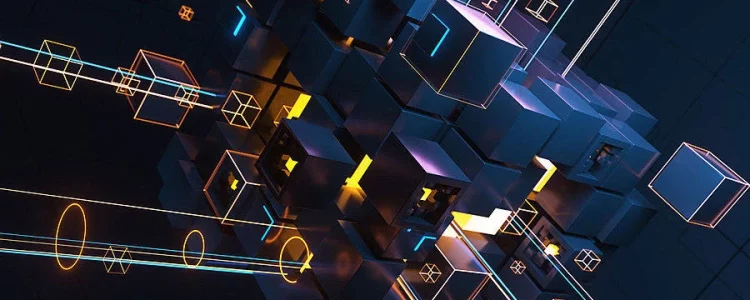Blockchain technology offers a revolutionary approach to data management, characterized by decentralization, immutability, and transparency. As more businesses and organizations explore the potential of blockchain for storing sensitive data, one critical concern that arises is whether on-chain data complies with current privacy protection regulations, such as the General Data Protection Regulation (GDPR) in Europe or the California Consumer Privacy Act (CCPA) in the U.S.
This article explores the intersection of blockchain and data privacy, examining whether storing data on a blockchain is compatible with contemporary privacy laws, and discusses the challenges blockchain projects face in ensuring compliance.
1. Understanding Blockchain and Privacy Protection
Blockchain’s decentralized nature ensures that data is distributed across multiple nodes, making it tamper-proof and transparent. While these features are valuable in many applications, they create significant challenges when it comes to compliance with privacy laws that prioritize individual rights to control and protect their personal information.
Here are the key privacy concerns that arise with blockchain technology:
- Immutability: Blockchain data is permanent and cannot be altered or deleted once recorded. This is great for integrity but creates tension with privacy regulations, which sometimes require that individuals can delete or amend their personal information.
- Transparency: All participants in the blockchain network can access the data stored in the blocks. In most public blockchains, this means that personal information could be publicly visible and accessible, which could breach privacy laws that require confidentiality.
- Data Ownership: One of the underlying principles of privacy laws like the GDPR is that individuals should have full control over their personal data. Blockchain, particularly in the case of public blockchains, raises questions about whether users truly own the data stored on-chain.
2. Key Privacy Regulations and Their Impact on Blockchain
2.1 General Data Protection Regulation (GDPR)
The GDPR, which came into effect in the European Union in 2018, is one of the most stringent privacy laws globally. It provides individuals with several key rights, including the right to erasure (right to be forgotten), right to rectification, and right to restrict processing of their personal data. These rights, however, conflict with blockchain’s immutability.
Challenges with GDPR Compliance:
- Right to Erasure (Right to Be Forgotten): The right to erasure, one of the most controversial aspects of the GDPR, allows individuals to request that their personal data be deleted. However, because data on a blockchain is immutable and cannot be changed once it is recorded, this presents a direct conflict. Once personal data is written to a blockchain, it is almost impossible to remove or amend.
- Right to Rectification: This right allows individuals to correct inaccurate data. On a blockchain, correcting data would mean creating a new block with the amended data, but the original block with the erroneous data would still exist, making it hard to enforce this right.
- Data Minimization: GDPR requires that only the necessary amount of personal data is collected and processed. Storing personal data on the blockchain could violate this principle if large volumes of unnecessary personal data are stored.
Potential Solutions for GDPR Compliance:
- Off-Chain Storage: Instead of storing personal data directly on the blockchain, sensitive information could be stored off-chain (in centralized databases, for example), with the blockchain only containing pointers to the data or cryptographic proofs of the data’s existence. This approach mitigates the immutability issue while still leveraging blockchain for security and transparency.
- Private Blockchains and Permissioned Blockchains: Some companies are exploring private or permissioned blockchains, where only authorized participants can access the blockchain. By limiting access, businesses may be able to comply with certain privacy regulations while still benefiting from blockchain technology.
- Zero-Knowledge Proofs (ZKPs): A privacy-preserving technique that allows one party to prove to another that they know a value without revealing the value itself. ZKPs could potentially be used to demonstrate that personal data meets specific conditions (such as age or citizenship) without storing the data itself on the blockchain.
2.2 California Consumer Privacy Act (CCPA)
The CCPA, which came into effect in 2020, is another important privacy law in the U.S. It gives California residents the right to access, delete, and opt-out of the sale of their personal data. Similar to GDPR, the CCPA enshrines the right to deletion, which may conflict with the immutable nature of blockchain.
CCPA Challenges:
- Right to Deletion: Like the GDPR’s right to erasure, the CCPA grants consumers the right to request the deletion of personal data. On a public blockchain, this is particularly problematic as removing data from the chain would require altering the blockchain, which is not possible due to its immutable nature.
- Right to Access and Portability: The CCPA gives consumers the right to access their data and request that it be transferred to another service provider. Blockchain’s transparent nature could make it easier for consumers to access their data, but once it’s on-chain, transferring it could be challenging if it contains personal information.
Potential Solutions for CCPA Compliance:
- Data Encryption: Encrypting personal data before placing it on the blockchain can help ensure that even if data is stored on the chain, it remains unreadable without the decryption key. This could allow blockchain projects to comply with CCPA’s data access requirements without exposing sensitive personal data.
- Data Minimization and Tokenization: Instead of storing raw personal data, projects can store tokenized representations of the data on the blockchain. Only the tokenized form is recorded, and the actual personal data remains off-chain, thereby mitigating potential privacy risks.
2.3 Other Global Privacy Regulations
- Brazil’s LGPD (Lei Geral de Proteção de Dados): Similar to the GDPR, Brazil’s LGPD enshrines data protection and privacy rights, including the right to deletion and rectification. The same concerns around immutability and transparency arise with LGPD as with GDPR.
- Personal Data Protection Act (PDPA) in Singapore: Like GDPR, the PDPA requires businesses to ensure the accuracy and confidentiality of personal data. Storing immutable personal data on blockchain could violate these principles unless data is encrypted or stored off-chain.

3. How Blockchain Projects Can Ensure Compliance with Privacy Regulations
Given the complexity of privacy laws and the fundamental nature of blockchain, here are some best practices blockchain projects can implement to stay compliant with current privacy regulations:
3.1 Avoid Storing Personal Data On-Chain
To avoid conflicts with privacy regulations like GDPR and CCPA, blockchain projects should limit the amount of personal data stored directly on the blockchain. Instead, consider off-chain storage solutions, where sensitive data is kept in a centralized database, and the blockchain is used to store only hashed data or references to off-chain data.
3.2 Use Privacy-Enhancing Technologies
There are several emerging technologies designed to enhance privacy in blockchain systems:
- Zero-Knowledge Proofs (ZKPs): As mentioned earlier, ZKPs can allow for data verification without revealing sensitive information. Blockchain projects should explore the use of ZKPs, ring signatures, or confidential transactions to enhance user privacy while maintaining compliance.
- Homomorphic Encryption: This encryption method allows data to be processed while it remains encrypted. Homomorphic encryption could help maintain privacy on a blockchain while still enabling users to interact with it.
3.3 Provide Transparent User Consent Mechanisms
To comply with privacy regulations, blockchain projects must ensure that they collect explicit consent from users regarding the collection and processing of their personal data. This can be achieved by implementing clear and transparent consent mechanisms that are aligned with privacy laws.
3.4 Implement Access Controls on Private Data
If personal data must be recorded on a blockchain, implementing permissioned blockchains or using private blockchains can mitigate privacy risks. In a permissioned blockchain, only authorized participants are allowed to access certain data, which helps prevent unauthorized disclosure of personal information.
3.5 Monitor and Adjust for Regulatory Changes
As the regulatory environment around blockchain and privacy is still developing, blockchain projects need to continuously monitor changes to data privacy laws and adjust their processes and technology stacks accordingly. Regular legal consultations and compliance audits will help ensure that the project remains in alignment with evolving regulations.
4. Conclusion
Storing data on the blockchain offers undeniable benefits in terms of transparency, security, and immutability. However, it also presents significant challenges when it comes to complying with modern privacy regulations like GDPR and CCPA. The key issue is the inherent immutability of blockchain, which can conflict with individuals’ rights to delete or modify their data.
By adopting privacy-enhancing technologies, storing sensitive data off-chain, and implementing user consent mechanisms, blockchain projects can find ways to comply with current privacy laws. As the regulatory landscape continues to evolve, blockchain projects must remain flexible and proactive in order to navigate the complex intersection of blockchain technology and privacy protection.













































